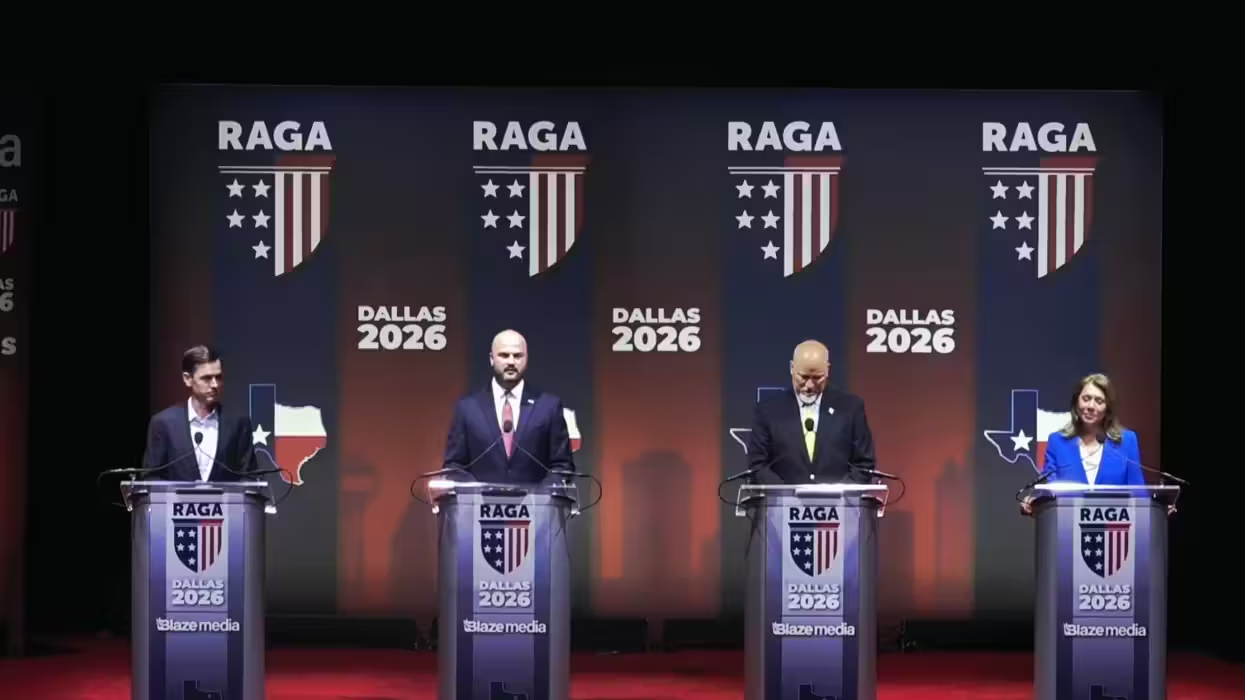 Wind turbines dot the shoreline near Port Burwell, Ontario, Canada on Thursday, Nov. 22, 2012 as birds sit on the shoreline. Credit: AP
Wind turbines dot the shoreline near Port Burwell, Ontario, Canada on Thursday, Nov. 22, 2012 as birds sit on the shoreline. Credit: AP
In addition to the tax hikes on the nation's highest income earners, the "fiscal cliff" legislation also included $76 billion in special interest tax credits for General Electric, rum makers and even the Hollywood industry.
As the Washington Examiner's Timothy Carney points out, "these subsidies weren't the fruit of eleventh-hour lobbying conducted on the cliff's edge -- they were crafted back in August in a Senate committee, and they sat dormant until the White House reportedly insisted on them this week."
The Family and Business Tax Cut Certainty Act of 2012, passed by the Senate Finance Committee in August, was reportedly put into the must-pass fiscal cliff bill nearly verbatim after it was considered stalled and just a "political document."
Carney explains:
"[If] you're wondering how algae subsidies became part of a must-pass package to avert the dreaded fiscal cliff, credit the Biotechnology Industry Organization's lobbying last summer.
[…]
Here's what happened: In late July, Finance Chairman Max Baucus announced the committee would soon convene to craft a bill extending many expiring tax credits. This attracted lobbyists like a raw steak attracts wolves.
Former Sens. John Breaux, D-La., and Trent Lott, R-Miss., a pair of rainmaker lobbyists, pleaded for extensions on behalf of a powerful lineup of clients.
General Electric and Citigroup, for instance, hired Breaux and Lott to extend a tax provision that allows multinational corporations to defer U.S. taxes by moving profits into offshore financial subsidiaries. This provision -- known as the "active financing exception" -- is the main tool GE uses to avoid nearly all U.S. corporate income tax.
Liquor giant Diageo also retained Breaux and Lott to win extensions on two provisions benefitting rum-making in Puerto Rico.
The Senate crammed in nearly 50 tax credit extensions into the Family and Business Tax Certainty Act of 2012 and the finance committee passed it 19 to 5. House Republicans expressed their hesitance to pass some of the extensions, particularly for green energy firms. So the bill sat on the shelf.
Then came the "fiscal cliff" emergency. A Republican aide familiar with negotiations told the Washington Examiner that the White House was "absolutely insistent" that the "exact language" of the previous tax extension bill.
"Sure enough, Title II of the fiscal cliff legislation is nearly a word-for-word replication of the Family and Business Tax Cut Certainty Act of 2012," Carney writes.
"The legislators and the staff go underground when things get so intense," another Hill staffer-turned-lobbyist told the Washington Examiner. "Nobody has time for a meeting. Nobody wants to talk about what's going on. ... The key is to plant the seed months in advance."
Fox News reports that the fiscal cliff deal includes $12.1 billion in tax credits for the wind-energy industry alone.
ABC News provides a run down of some of the other tax gifts to special interest groups:
- $430 million for Hollywood through “special expensing rules” to encourage TV and film production in the United States. Producers can expense up to $15 million of costs for their projects.
- $331 million for railroads by allowing short-line and regional operators to claim a tax credit up to 50 percent of the cost to maintain tracks that they own or lease.
- $222 million for Puerto Rico and the Virgin Islands through returned excise taxes collected by the federal government on rum produced in the islands and imported to the mainland.
- $70 million for NASCAR by extending a “7-year cost recovery period for certain motorsports racing track facilities.”
- $59 million for algae growers through tax credits to encourage production of “cellulosic biofuel” at up to $1.01 per gallon.
- $4 million for electric motorcycle makers by expanding an existing green-energy tax credit for buyers of plug-in vehicles to include electric motorbikes.
It's unclear whether all lawmakers even knew what they were voting for as the Senate reportedly voted in favor of the cliff legislation just three minutes after receiving it.
To read Carney's full report, click here.
Featured image via AP

 Wind turbines dot the shoreline near Port Burwell, Ontario, Canada on Thursday, Nov. 22, 2012 as birds sit on the shoreline. Credit: AP
Wind turbines dot the shoreline near Port Burwell, Ontario, Canada on Thursday, Nov. 22, 2012 as birds sit on the shoreline. Credit: AP






